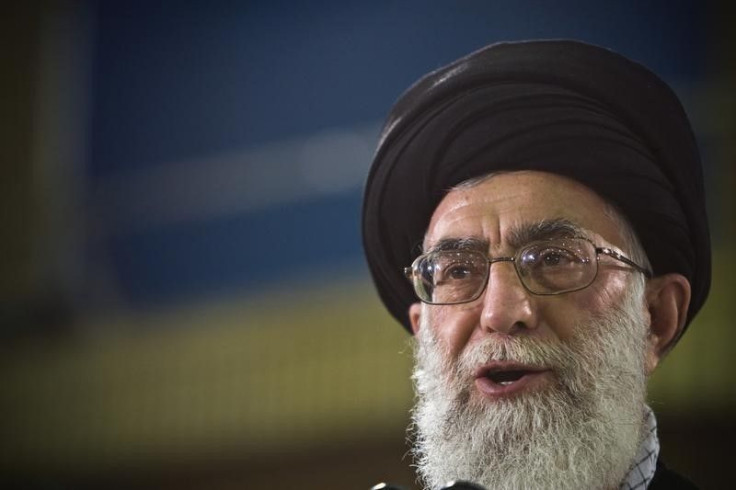Iran Refuses To Allow Access To Nuclear Scientists; Won't Bow To 'Unreasonable Demands'

Iran will not allow international inspectors to interview its nuclear scientists, Supreme Leader Ayatollah Ali Khamenei said Wednesday, adding that such "unreasonable demands" would not be entertained by his country. Khamenei’s comments were broadcast on live television. He said Iran would “never yield to pressure” to world powers over a controversial proposed nuclear deal.
"We will not allow the privacy of our nuclear scientists or any other important issue to be violated," Reuters quoted Khamenei as saying. Iran’s supreme leader has the final say on any major political issue in the country. ABC News reported that, according to a U.S. State Department fact sheet, Iran would have to grant the U.N. nuclear agency access to any "suspicious sites" under the proposed nuclear deal. However, Iran maintains that it will not grant such access.
Khamenei said that interviewing Iran’s nuclear scientists meant “interrogation.” "I will not let foreigners talk to our scientists and to interrogate our dear children who brought us this extensive (nuclear) knowledge," he said.
Iranian news website Press TV quoted President Hasan Rouhani saying that Iran’s negotiations with six world powers over the nuclear deal would eventually bring “glory for the great Iranian nation.” Rouhani said that Iran would be able to bring about victory in the international arena. The Iranian president said that efforts to portray a bad image of the country had failed. He added that the country was able to defeat “Iranophobia project in the world.”
Rouhani said that the people of Iran never intended to attack any country. However, any hostile act against the Islamic nation would evoke strong reactions, he said.
Western powers have been accusing Iran of developing nuclear weapons. The U.N. International Atomic Energy Agency has been making efforts to perform an investigation over the allegations. Iran argues that its program is peaceful.
Western nations insist that Iran must cooperate with the IAEA to secure a more transparent deal with world powers. Otherwise, the oil producing country may suffer more sanctions.
While Iran’s nuclear facilities are monitored by U.N. inspectors on a regular basis, the IAEA has often blamed the Middle Eastern nation for restricting access to its equipment, documents, people and sites during inspection.
© Copyright IBTimes 2025. All rights reserved.





















